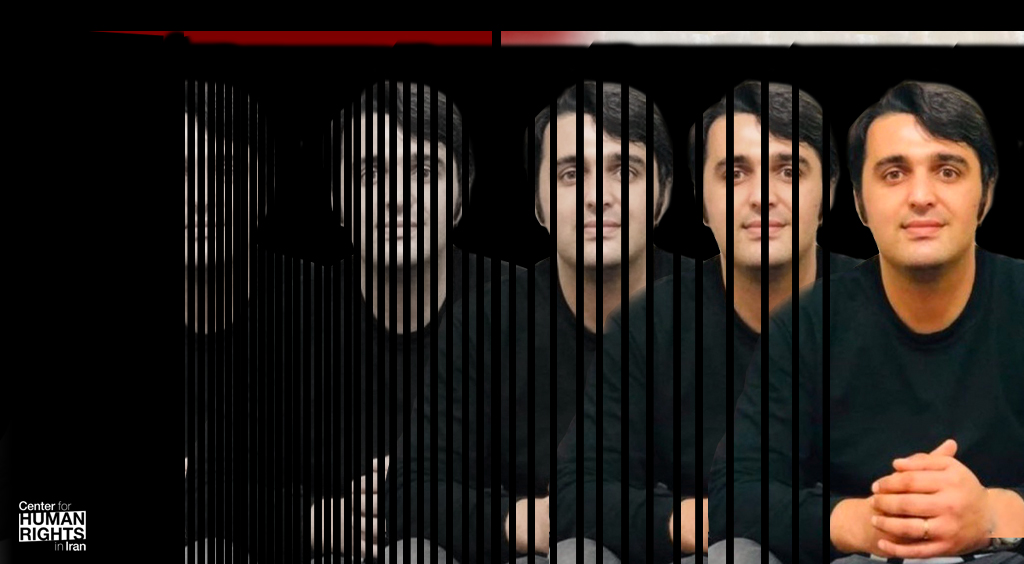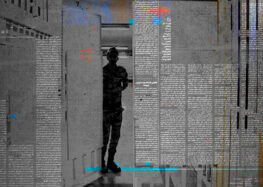Tortured Protester Dies in Iranian Prison After Death Sentences Thrown Out

Another Political Prisoner’s Death Sparks Outrage Weeks Before Anniversary of Iran’s “Woman, Life, Freedom” Uprising
Citing Relative, Activist Says Javad Roohi was “Killed”
September 1, 2023 – The death of Javad Roohi, aged 35, in Iranian state custody, following his arrest during anti-state protests and subsequent torture during interrogations, demands a comprehensive investigation by the independent UN Fact-Finding Mission on Iran and a strong response from the international community, the Center for Human Rights in Iran (CHRI) said today.
“Javad Roohi remained incarcerated even after Iran’s own Supreme Court ruled the charges against him were unfounded,” said CHRI Executive Director Hadi Ghaemi. “His death should be examined in the context of the Iranian government’s pattern of targeting and killing protesters who dare to speak out against the state in Iran.”
Ghaemi stressed the need for a thorough, independent investigation, including the involvement of the Fact-Finding Mission on Iran, stating, “In conjunction with the deaths of countless other protesters in Iran, and the lethal violence these individuals face once in state custody, this case underscores the urgency of holding Iranian authorities accountable for their ongoing campaign of violence against those who raise their voices against oppression.”
“If Iranian authorities are allowed to kill, maim, and torture people without meaningful consequences, we risk witnessing more political prisoners losing their lives and more protesters being subjected to extreme violence on the streets,” he added.
CHRI joins Amnesty International in appealing for states to consider the exercise of universal jurisdiction over any Iranian officials reasonably suspected of criminal involvement in severe human rights abuses, such as enforced disappearances, torture, and lethal violence against protesters.
Supreme Court Invalidates Charges Against Roohi
Roohi died on August 31, 2023, after being transferred from the Central Prison of the city of Nowshahr in Mazandaran province to a hospital.
Citing one of his relatives, a prominent Iranian activist said in a series of social media posts that he was “killed,” prompting rage among Persian speakers as many likened his death to the case of Mahsa Jina Amini, 22, whose killing in state custody on September 16, 2022, just three days after being arrested for her alleged inappropriate hijab, prompted months of anti-state protests which came to be known as Iran’s “Woman, Life, Freedom” movement.
Roohi was arrested on September 22, 2022, during those protests, and in December 2022 he was handed three death sentences on charges of “corruption on earth,” “destruction of property and setting fire to a traffic kiosk,” and “blasphemy and insulting the scared by setting fire to a Quran,” as well as a prison sentence of nine years and six months.
However, a video posted on social media showed Roohi only dancing in the street amid the protests. CHRI highlights the stark contrast between the charges against Roohi and the initially imposed punishment of three death sentences as further evidence of the political motivations and undue influence of state security forces in Iran’s judicial proceedings against protesters.
The activist with detailed knowledge of his case said he was severely tortured during the initial phase of his arrest, while he was being interrogated:
“He was tortured for more than 40 days. The tortures he endured in solitary confinement included locking him inside a storage freezer, freezing his testicles, giving him electric shocks, beating him up, flogging him, and threatening him with a gun. As a result, he had multiple physical problems.”
“As a result of the torture and other ill-treatment, Javad Rouhi suffered rotator cuff injuries, urinary incontinence, digestive complications and mobility and speech impairment for which he was denied access to adequate health care,” according to Amnesty International.
An aspiring lawyer, Roohi was denied access to a lawyer of his choosing, yet the lack of evidence against him resulted in Iran’s Supreme Court ultimately throwing out the death sentences. Still, he was kept in prison while awaiting a re-trial, only to suddenly die nearly a year after he was arrested.
Family Faces Intense Pressure from State Forces
Roohi’s body was returned to his family only after state security agents coerced them into committing not to disclose the details of his case. Pressure on the families of those killed by the state—either in the streets or in state custody—to remain silent is routine in the Islamic Republic.
He was laid to rest “in the presence of security agents in his father’s village of Kelikan near Amol [Mazandaran province, northern Iran],” as reported by the activist.
Similar to Mahsa Jina Amini’s family, Roohi’s family has been subjected to threats from Iranian intelligence agents, warning them of severe consequences if they publicly discuss the case. Nevertheless, a post on his brother’s Instagram account has called for a gathering at a local mosque in the village of Kelikan today and this weekend, as well as at Roohi’s gravesite on Monday.
CHRI expresses deep concern for the safety of Roohi’s family and the families of all individuals affected by state brutality in Iran, as Iranian authorities continue to carry out arbitrary arrests as a deterrent in the lead-up to the anniversary of the “Woman, Life, Freedom” movement on September 16.
“This case again demonstrates the Islamic Republic’s violent suppression of dissent and its lethal treatment of political prisoners,” stated Ghaemi. “Without a strong international reaction that imposes political and economic costs on the Islamic Republic, these tragic deaths will continue.”






